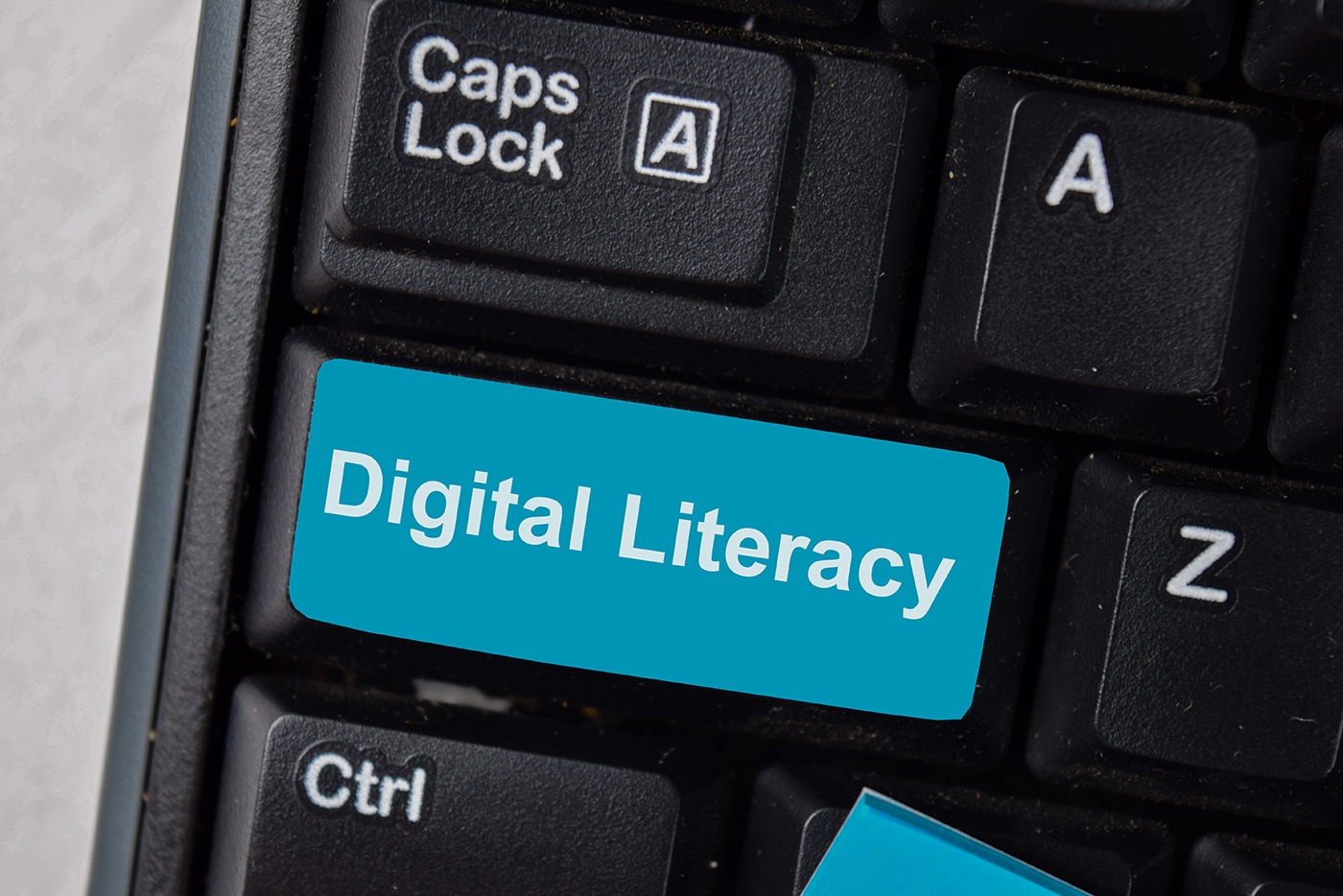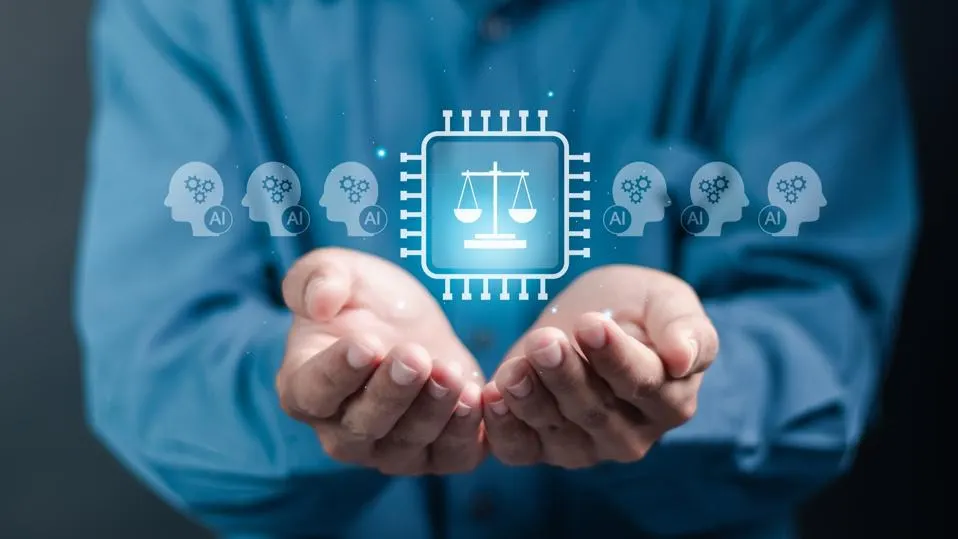7 Easy Ways To Boost Your Digital Literacy
8 August 2022
No industry will be left untouched by the wave of digital transformation that’s taking place. Everyday tasks and communications will increasingly involve digital tools. Learning (whether workplace learning or full-time education) will increasingly harness digital tools. Intelligent machines – which could encompass robots, software, AIs, sensors, and who knows what else in the future – will increasingly become part of every workplace, from factories to law firms. In short, everyone’s jobs will change, to one degree or another.

This means we all need to be confident working alongside digital tools and able to interact with technologies with ease. This, in a nutshell, is what we mean by digital literacy. It’s having the skills needed to learn, work, and navigate life in our increasingly digital world.
Basic digital literacy means being able to:
- Use digital devices, software, and applications with confidence.
- Communicate, collaborate and share information with others via digital tools like Google Docs or Zoom.
- Handle data in an appropriate, effective and secure way.
- Stay safe online.
Here are seven ways to build your digital literacy.
1. Start by considering the impact that this digital revolution might have on your workplace and your job. For many, it will mean that easily repeatable tasks become automated as the division of labor between humans and machines shifts. Consider which parts of your job could potentially be automated in the future and how this might impact your role (for example, freeing you up to focus on value-adding tasks that you currently struggle to make time for).
2. Then, look at the basic skills outlined above and assess whether there are any gaps in your knowledge. If you need to beef up your digital skills, depending on where you are in the world, there should be some useful government or institutional learning resources. A great example in the UK comes from the Open University, which has a free course called “Digital skills: succeeding in a digital world,” designed to help people develop the confidence and skills for life online.
3. Going beyond the basics, you’ll want to keep abreast of new technologies and digital trends, such as AI and the metaverse. You don’t need to become a tech expert to thrive in the digital world, but you will need to stay in the loop on what’s coming down the line. How you keep abreast of these trends will depend on your preferred way of learning new things. For example, there are resources like WIRED magazine and the GeekSpeak podcast. There’s also my own website (bernardmarr.com) and my YouTube channel, which is great for bite-size content.
4. Encourage your employer to invest in digital literacy training and support. This will be a harder task at some companies than others, but try to sell the positive benefits that come with enhanced digital skills – including improved productivity and performance.
5. Focus on the value and benefits of new technologies to you personally. So, rather than approach new technologies from a place of fear, try asking yourself, “How will this help me do a better job and achieve my personal and professional goals?"
6. Don’t buy into the narrative that “robots are coming for all our jobs.” Yes, many millions of jobs will become obsolete due to automation. But the number of new jobs created will outweigh those lost. To put this in numbers, the World Economic Forum estimates that 85 million jobs may be displaced by 2025 as the division of labor shifts from humans to machines, but, crucially, 97 million new roles will emerge that are more suited to this new division of labor. In my mind, being positive about new technologies is an important (and overlooked) part of digital literacy, so ignore those negative headlines.
7. Think of yourself as a "lifelong learner." For me, this is probably the most important item on this list. We know that the digital transformation will alter the majority of jobs and make some jobs obsolete. And that constant change will be the new norm for most organizations. In this environment, digital skills will quickly grow stale and need refreshing. In other words, it's not a case of acquiring digital skills, and then you're done. It requires an ongoing commitment. Luckily, there are so many flexible ways to learn these days, including online courses, video tutorials, audiobooks, and more. It’s never been easier to be a lifelong learner.
Related Articles
How You Become Irreplaceable In The Age Of AI
In a world where artificial intelligence is rapidly advancing, many of us are left wondering: Will AI take our jobs?[...]
Why Apple Intelligence Sets A New Gold Standard For AI Privacy
In the rapidly evolving world of artificial intelligence, privacy concerns have become a hot-button issue.[...]
Can Your Device Run Apple Intelligence? What You Need To Know
Apple's announcement of Apple Intelligence has sent waves of excitement through the tech world.[...]
10 Amazing Things You Can Do With Apple Intelligence On Your IPhone
Apple Intelligence is poised to revolutionize the iPhone experience, offering a suite of AI-powered tools that promise to make your digital life easier, more productive, and more creative.[...]
Agentic AI: The Next Big Breakthrough That’s Transforming Business And Technology
The world of artificial intelligence is evolving at a breakneck pace, and just when you thought you'd wrapped your head around generative AI, along comes another game-changing concept: agentic AI.[...]
Sign up to Stay in Touch!
Bernard Marr is a world-renowned futurist, influencer and thought leader in the fields of business and technology, with a passion for using technology for the good of humanity.
He is a best-selling author of over 20 books, writes a regular column for Forbes and advises and coaches many of the world’s best-known organisations.
He has a combined following of 4 million people across his social media channels and newsletters and was ranked by LinkedIn as one of the top 5 business influencers in the world.
Bernard’s latest book is ‘Generative AI in Practice’.










Social Media